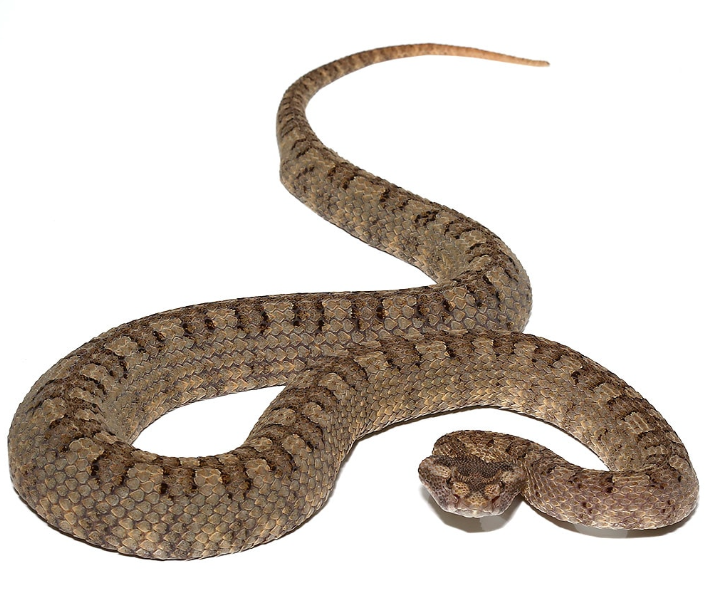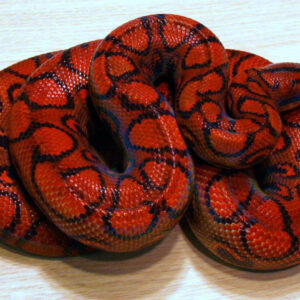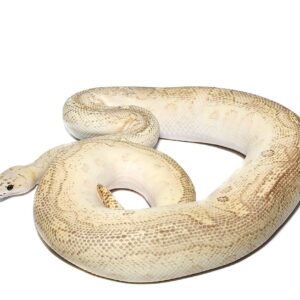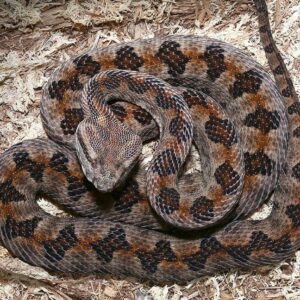Horned Pit Viper For Sale
$949.99
HORNED PIT VIPERS FOR SALE. HERE ARE SOME HIGHLIGHTS:
- Protobothrops cornutus
- Captive Bred
- Male And Female Pair
- Approximately 15 – 22 Inches In Length
- Adults Can Get Up To 5 – 6 Feet In Total Length
- Feeding On Frozen Thawed Or Live Hopper Mice
- *These Are Venomous. Please Know Your State Laws Before Inquiring As Some States Require Venomous Permits*
FUN FACTS!
- Very Toxic Venom, Not For Handling
- Tropical Species Requiring Temperatures From The Low 80s To Low 90s And Daily Misting
- This Is An Obscure Species Is Found In Northern Vietnam, Into Southern China.
- These Can Live Up To 15 – 20+ Years In Captivity
- Some States Require Venomous Permits Please Know Your State Laws Before Inquiring
Description
The horned pit viper, scientifically known as Vipera ammodytes, is a fascinating reptile species renowned for its distinctive horn-like structure above its eyes. This unique feature not only gives the snake its name but also adds to its allure among herpetologists and reptile enthusiasts.
Physical Characteristics
The horned pit viper is relatively small, typically measuring between 60 to 95 centimeters in length. Its coloration varies, ranging from grey to brown, allowing it to blend seamlessly into its natural habitat. The prominent horn, a characteristic feature, is a modified scale that serves no known functional purpose but adds to the snake’s mystique.
Habitat and Distribution
Native to Southern Europe, the horned pit viper thrives in rocky hillsides, wooded areas, and scrublands. Its geographical range includes countries like Italy, Greece, and the Balkans. Adapted to a variety of environments, this viper is often found basking on sunlit rocks during the day and retreating to cooler, shaded areas when temperatures rise.
Behavior and Diet
The horned pit viper is primarily nocturnal, hunting its prey under the cover of darkness. Its diet mainly consists of small mammals, birds, and lizards. Utilizing its heat-sensing pit organs, the viper can detect and accurately strike warm-blooded prey even in total darkness. This efficient hunting strategy makes it a formidable predator in its ecosystem.
Conservation Status
While the horned pit viper is not currently listed as endangered, habitat destruction and human encroachment pose significant threats to its population. Conservation efforts are vital to ensure the survival of this remarkable species, preserving its place in the natural world for future generations to study and admire.






